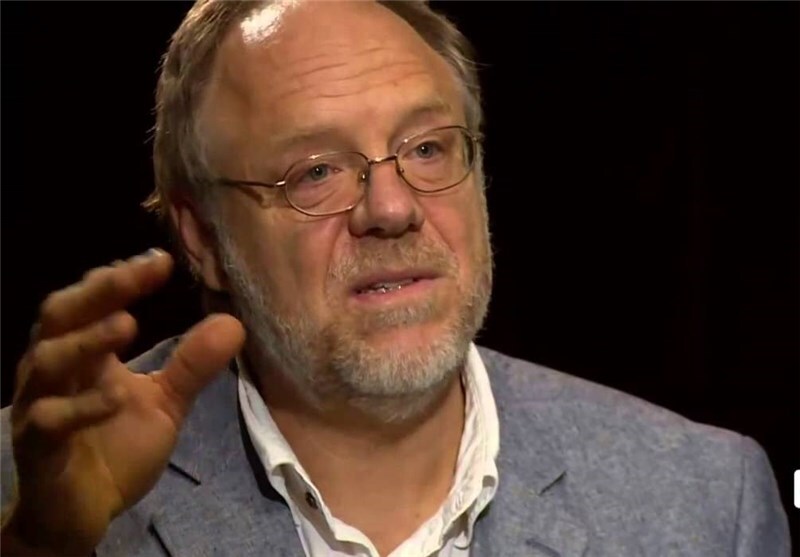Sunday, 20 June 2021 (YJC) _ In his recent interview, kevin barret makes remarks on previous US administration’s unilateral withdrawal from JCPOA, the country’s violation of the deal and sanctions and also discusses Iran’s position in the future if the revival would happen.
 1)Would it be possible for Iran to ensure that the next US president would not withdraw the deal for the second time?
1)Would it be possible for Iran to ensure that the next US president would not withdraw the deal for the second time?
Unfortunately, Iran cannot ensure that the US won’t scrap the JCPOA yet again. That is why Iran needs to verify that the US has dropped all sanctions before it fully re-enters the deal. That way even if the US once again tears up the deal a few years down the road, Iran will have at least experienced a few years of sanctions relief before the next round of American perfidy.
Additionally, if all sanctions were abolished prior to Iranian re-entry into the JCPOA, US companies would start to trade with and invest in Iran. They would then be in a position to lobby to prevent a future president from reneging on the deal. So complete and verifiable abolition of all sanctions in advance of Iran’s re-entry would likely make the deal worthwhile for Iran, even though there can be no guarantee that the US will continue to abide by its obligations.
2) Would US temporary commitment to JCPOA harms Iran's economy?
If the US were to convince Iran to fully re-enter the JCPOA without a full and verifiable end to all US sanctions, the Zionist-infiltrated Biden Administration would probably slow-walk the promised sanctions relief, just as the Obama Administration did, by raising irrelevant issues like Iran’s rockets and regional allies. Again, that is why Iran needs to see that all sanctions have been verifiably dropped before it re-enters the deal.
3) In case an agreement should turn to a treaty, what is the procedure in the US?
According to international law, a "treaty" is any legally binding agreement between nations. By that definition, the JCPOA is a treaty. But in the United States, the word “treaty" only covers an agreement made "by and with the Advice and Consent of the Senate" (Article II, Section 2, Clause 2 of the Constitution). Theoretically this should only be a semantic issue. An international agreement by the President but not submitted to the Senate for ratification, like the JCPOA, is called an “executive agreement” not a “treaty.” But like a treaty it is legally binding, so it is the same as a treaty in the eyes of international law.
4) If JCPOA turns to a treaty, which country would benefit more, Iran or US?
As explained above, the JCPOA is already a treaty under international law. So, this issue is a red herring. Americans opposed to JCPOA have claimed that it isn’t a legitimate treaty because it was never approved by the Senate. But that is not true. Many executive agreements made by the United States, including the JCPOA, have the same legal force as treaties. So the problem was not that the Senate didn’t approve it. The problem was that the Obama Administration slow-walked the sanctions relief, and then the Trump Administration tore up the agreement and reneged on it. In other words, the problem was the bad faith of one American administration, and then the worse faith of the succeeding one.
5) In what ways could the US president withdraw from treaties?
Unfortunately, US presidents can unilaterally withdraw from treaties (agreements approved by Congress) just as easily as from executive agreements (like JCPOA). An article from the Just Security website explains:
"Had President Obama negotiated the Iran deal as an Article II Treaty requiring a two-thirds vote in the Senate, the argument goes, President Trump couldn’t have—or perhaps wouldn’t have—withdrawn from it. While that view might be consistent with the Founding Fathers’ intent in drafting the Treaty Clause, recent history suggests this view is incorrect. Presidents Jimmy Carter and George W. Bush both unilaterally withdrew from Article II Treaties, without a vote from Congress, and courts dismissed lawsuits challenging their authority to do so. Negotiating the Iran deal as an Article II Treaty would not have stopped President Trump from unilaterally withdrawing from it.”
So, Iran needs to know that nothing will stop the next president from tearing up the JCPOA again, just like Trump did. Normally, one would hope that simple morality, and the need to uphold America’s international reputation, would prevent perfidious acts like Trump’s reneging on the JCOPA. But the corrupt oligarchy that rules the US doesn’t seem to care about morality, nor its reputation. As Putin allegedly has said, the US is “non-agreement-capable.” So, Iran must verify that all sanctions are gone before it re-enters JCPOA.
 1)Would it be possible for Iran to ensure that the next US president would not withdraw the deal for the second time?
1)Would it be possible for Iran to ensure that the next US president would not withdraw the deal for the second time?